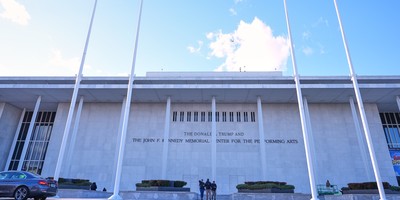Journalists really like the poor. I don't mean they like living with them or even near them. They just love knowing they are there - even when they don’t really exist. It seems "Poverty Porn" has never been more popular even as Americans and the world gets richer and richer, and of course for these journalists America and the American system is to blame.
A recent shining example of poverty porn was by The Guardian’s Ed Pilkington who produced what he called “A journey through a land of extreme poverty: welcome to America,” in which he uncritically followed Philip Alston, the UN’s Special Rapporteur on extreme poverty and human rights, to the worst case scenarios of ill, isolated, confused loners in the American landscape, suggesting they reveal a fundamentally unworkable system. As Pilkington put it, Alston “wants to know why 41 million Americans are living in poverty. The Guardian joined him on a special two-week mission into the dark heart of the world’s richest nation.”
Alston and Pilkington focused on a few dwellers in a tiny handful of homeless encampments like those in Los Angeles and San Francisco, filled with drug addicts, transients and the mentally ill and then implied that the 41 million "in poverty" in America are also living in such dire circumstances. Pilkington and Alston claim the extreme poverty they allegedly witnessed was because of America's "exclusion.... of public assistance" for the poor.
The U.S. has spent some $23 trillion on the decades-long “war on poverty" more than any country on the planet - but a few drug addicts, transients and mentally ill beat a hard cash figure when you have the Guardian and the United Nations wanting to bash the country.
Recommended
In recent years the biggest example of Fake News reporting on Fake Poverty may be the claim, begun during the Obama administration, that the expansion of Food Stamps use is a good indicator of how poor and hungry Americans are.
My favorite example of the genre was a 2011 NBC News report by Brian Williams - particularly as it backfired on the host.
At first, the story followed the familiar narrative about the swelling ranks of poor Americans. As Williams anchored, reporter Kate Snow talked to people struggling to pay for meals. “Becca Reeder is nearly out of food,” narrated Snow, “and she’s out of money to buy more.”
The situation sounded bad. Snow explained, ”Becca, husband T.J., and two-year-old son Miles will have to hang on for six more days until the first of the month. That’s when they’ll get the cash to go food shopping. Afterwards Snow talked to anchor Williams for the traditional reporter/news anchor summary of the report.
But as Brian Williams was later to find out, to his cost, in an online world the traditions of fake journalism are being upended every day. Williams explained that Snow’s segment had already been seen by many viewers online -- and that they had reacted skeptically.
“Here’s some of the comments,” Williams told Snow. “They [the families depicted in Snow’s piece] have nice phones…Some of them have a nice SUV… Everybody seems to have a flat-screen TV.”
Snow’s responses were brief, not addressing the glaring problem with her piece. She very quickly shifted to the circular argument that since these families successfully qualified for Food Stamps, they must be deserving of assistance.
“And all those people have qualified under their state rules, whether you like that or not.”
Indeed - whether you like it or not there’s a deep deception at work in U.S. poverty debates enabled by reporting like that of Kate Snow and Ed Pilkington, and it can have an impact on public policy (and the taxpayers who foot the bill).
Even the definition of “the poor” in the U.S. is a shifty thing. Heritage Foundation researchers Rachel Sheffield and Robert Rector note that even the poor in the U.S. today are better off than the middle class of four decades earlier. They note, for instance, that by 2005 about 64% of Americans living “in poverty” according to government-defined income cutoffs now have cable or satellite TV and 78 percent had air conditioning. By contrast, in 1970 only about a third of all homes had air conditioning.
We all live like literal kings compared to prior generations, most of whom toiled on farms from dawn to dusk as recently as the 19th century – and faced the very real threat of starvation if they faltered or there was a bad growing season. Mass starvation was still a periodic occurrence as recently as the late twentieth century but absent warfare or punitive political embargoes does not happen today except on a very small, very local scale. The number of people living in dire poverty, usually defined as living on a dollar or less per day, has been roughly halved over the past three decades, from about 2 billion to 1 billion people.
That’s one of the greatest feats of progress in all of human history and it always came after countries such as China and India threw off Soviet inspired socialism and embrace American inspired capitalism. Now that really is a story worth reporting.
























Join the conversation as a VIP Member